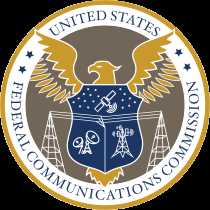The Federal Communications Commission (FCC) is an independent agency of the United States government responsible for regulating interstate and international communications by radio, television, wire, satellite, and cable. Established by the Communications Act of 1934, the FCC is charged with regulating all aspects of the nation’s communications industries, including broadcast radio and television, wireline telephone, wireless telephone, satellite television, cable television, and other forms of communication.
The FCC was created in 1956 by the passage of the Communications Act of 1934, which replaced the Federal Radio Commission. This Act was passed in an effort to create a more unified system of communications regulation in the U.S. The FCC was created to ensure that the public’s right to access and participate in the media is protected, while also regulating the industries’ economic interests.
The FCC is tasked with ensuring that the public is provided with access to a variety of communications services, including television, radio, and telephones. It also ensures that the public is protected from interference or other interference with their access to the media. The FCC works to ensure that the media industry does not become excessively concentrated or monopolized so that citizens have access to the widest range of information and entertainment.
The FCC is also responsible for regulating the broadcast industry and the spectrum on which radio and television signals are transmitted. This includes setting the standards for the quality of broadcasting and the technical requirements of radio and television stations. Additionally, the FCC is responsible for setting the rules and policies that govern how radio and television stations operate, including the rules and regulations governing advertising, content, and the use of public airwaves.

The FCC is also responsible for protecting the public from false or deceptive advertising, as well as safeguarding the privacy of consumers. It is also responsible for making sure that the public is aware of the potential risks associated with using certain communications services and technologies, such as mobile phones, television, and the Internet.
Finally, the FCC is responsible for protecting the public from predatory or deceptive practices in the communications industry, such as those that would limit competition and lead to higher prices or other unfair practices. It also works to ensure that all communications services are available to the public at a reasonable cost and that the public is provided with accurate information so they can make an informed decision when choosing a communications provider.